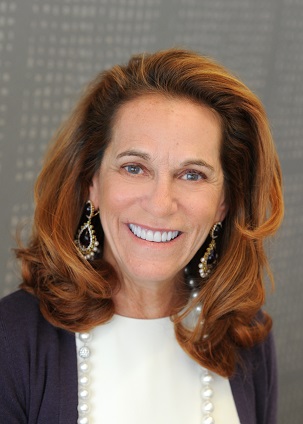Of the most memorable film scenes from the past couple years, one iconic moment comes to mind: Wonder Woman, played by Gal Gadot, saving the world, using her power and determination — with the help of some super strength and armored bracelets. Not only are images like these symbolic of Hollywood’s post-#MeToo female empowerment, but it’s also metaphoric of the success of female-led victories at the box office.
Vanity Fair cites a new study that found female-led movies outperformed male-led movies for the past three years. But as in other industries across the country, the pay gap remains a significant barrier.
This story is not new. Emma Stone, 2017’s highest-paid actress, earned a whopping $26 million, a whole 2.5 times less than Mark Wahlberg’s $68 million, the highest paid actor of the same year. 2018’s highest pay discrepancy was even more astounding. Scarlett Johansson took home $40.5 million, while The Rock made over three times the amount: $124 million.
Public scrutiny of the entertainment industry coupled with the success of female-fronted films has empowered many actresses to ask for what they deserve. Yet each negotiation can’t be a one-woman show. Systemic gender inequalities within Hollywood need to change — and industry professionals and companies can support women through the simple approaches of data reporting, allyship, and improved equality policies and incentives.
Act I. Lights, Camera… Data Reporting
One of the most apparent ways to address and improve Hollywood’s gender pay disparity is through clear, fact-based evidence. In previous years, salary discrepancy has come to the forefront of the industry as seen in the aftermath of several Hollywood scandals that exposed salary data — think: Sony’s email hack or the Williams/Wahlberg reshoot fiasco — women were, and still are, kept ignorant about their male co-stars’ paychecks.
When organizations confront these issues, they’re forced to reckon with their own unconscious bias. Melissa Silverstein, the founder and publisher of the gender parity initiative, Women and Hollywood, explains how non-transparent salary offerings keep women down and only benefit the people in power.
Speaking to Forbes, Silverstein says, “What women are doing now is taking power into their own hands and saying, ‘We know what other people are being paid and you’re not going to get away with this anymore.’”
Indeed, reports show that making salaries public helps close the pay gap in many areas because reporting measures help identify “bad performers.” When companies are more aware of the reputational consequences of gender gap and data reporting, it prompts them to action. In the UK, “naming and shaming” mechanisms provide public gender pay gap data which has notably affected employes at the BBC.
The more salary information is actively reported, the more leading ladies and other women in the industry can leverage their earning power. Under California’s new Fair Pay Act, Hollywood employees will be allowed to discuss their co-workers’ wages and ways to eliminate loopholes that allowed employers to justify unequal pay distribution between genders.
Act II. All Heroes need Allies
Sure, women don’t need saving in the movies anymore, but support sure helps. Allyship in the workplace is another way that industries like Hollywood can topple the pay gap. Cultural change only occurs when organizational catalysts act as allies and cheerleaders for the cause. Organizational shifts need to occur from the heavily male-dominated studios first.
We’ve seen many examples of male to support diversity. Male actors like Benedict Cumberbatch vowed to only work on films where his female co-stars are paid equally. Others like Bradley Cooper have publicly supported the movement.
The Harvard Business Review examines how other males in Hollywood (and elsewhere) can help topple the patriarchal pay gap. First, male allies need to be committed to the cause and community even at the risk of not fitting in with the dominant culture. Researchers suggest that men at every level can call out insults and affronts, eliminate pay and promotion disparities, and advocate for diversity policies in their organizations. The more vocal male allies call out injustices and believe in the possibility of change within the industry, the more others will unify around a culture of change.
Speaking to The Hollywood Reporter, Attorney Neil Meyer, who represented Halle Berry and Taraji P. Henson, says, “We’re a community, and to the extent that any or all of us do something to perpetuate inequality, we’re all complicit; either you’re trying to be a part of the solution or you’re trying to be part of the problem.”
Act III. Call Action on Equal Policies and Initiatives
Equal pay will not prevail until action-oriented policies become ingrained within organizations. In Hollywood, it’s reported that women make even less than the national average of 80 cents to every dollar that men make; research from Dominican University of California shows that sometimes Hollywood women may make as low as 30 cents to a man’s dollar based on a “quota system.”
But new organizations and networks are trying to curb these systems. The Time’s Up Legal Defense Fund has raised more than $22 million since it began to fight for equal pay and help end harassment in the various workplaces. In fact, the Time’s Up movement prompted HBO to close the pay gap across all its TV shows. Other industry firms, Creative Artists Agency (CAA) and the International Creative Management, have taken on the “50-50 by 2020” pledge.
Other initiatives like Women’s Media Action Coalition (WeMac) and Take the Lead’s “50 Women Can Change the World in Media and Entertainment” project are executing multi-pronged goals to achieve intersectional gender parity in the workforce. WeMac has already sought justice through seven task forces that lobby, litigate, research and fund projects. Take the Lead aims for gender parity in film and television by 2025. Their leadership building program has created a network giving women accessible tools that help them navigate the industry and serve as an example of how to close the gap.
Of course, there are a series of federal and state laws that support the equal pay wage movement. However, none of them demand inclusive hiring or reporting. As women grow more powerful in Hollywood, they should require contracts that are inclusive of their value and other female setworkers, too. For one, it’s necessary to demand inclusion riders — a clause that stipulates on the diversity of the cast and crew to retain acting services. More actors like Frances McDormand and Michael B. Jordan now use this tool to alleviate the pay gaps that persist for gender and racial minorities in the film industry. Secondly, it’s important not only to discuss pay with co-workers, but to negotiate and stipulate transparent communications regarding salary within a contract. With building pressures on studios, Hollywood women can band together and use these tactics to close the pay gap even further.
Time’s Up, Pay Up!
Hollywood is a business like any other and merely reflects the poor state of pay inequality across the country. The Institute for Women’s Policy Research suggests that California, where the epicenter of entertainment studios lie, will close the pay gap by 2043. Executives need to get behind the scenes and enact fairer policies, not just condemn inequality on the public stage. The glare of the lens is on industry leaders in Hollywood to pay up. If not, women should take on the everyday Wonder Woman role and demand a happy ending to unjust policies ourselves.


